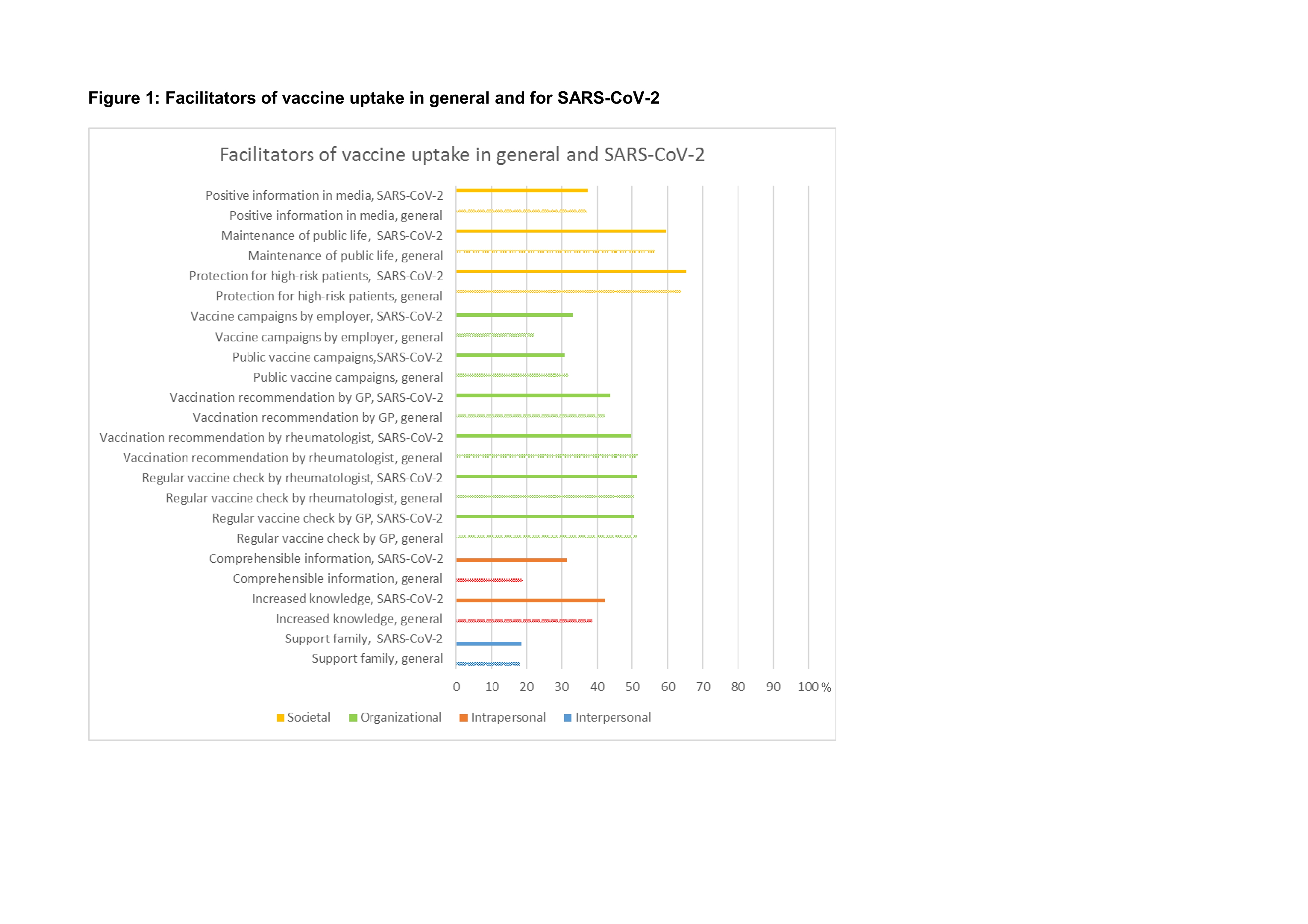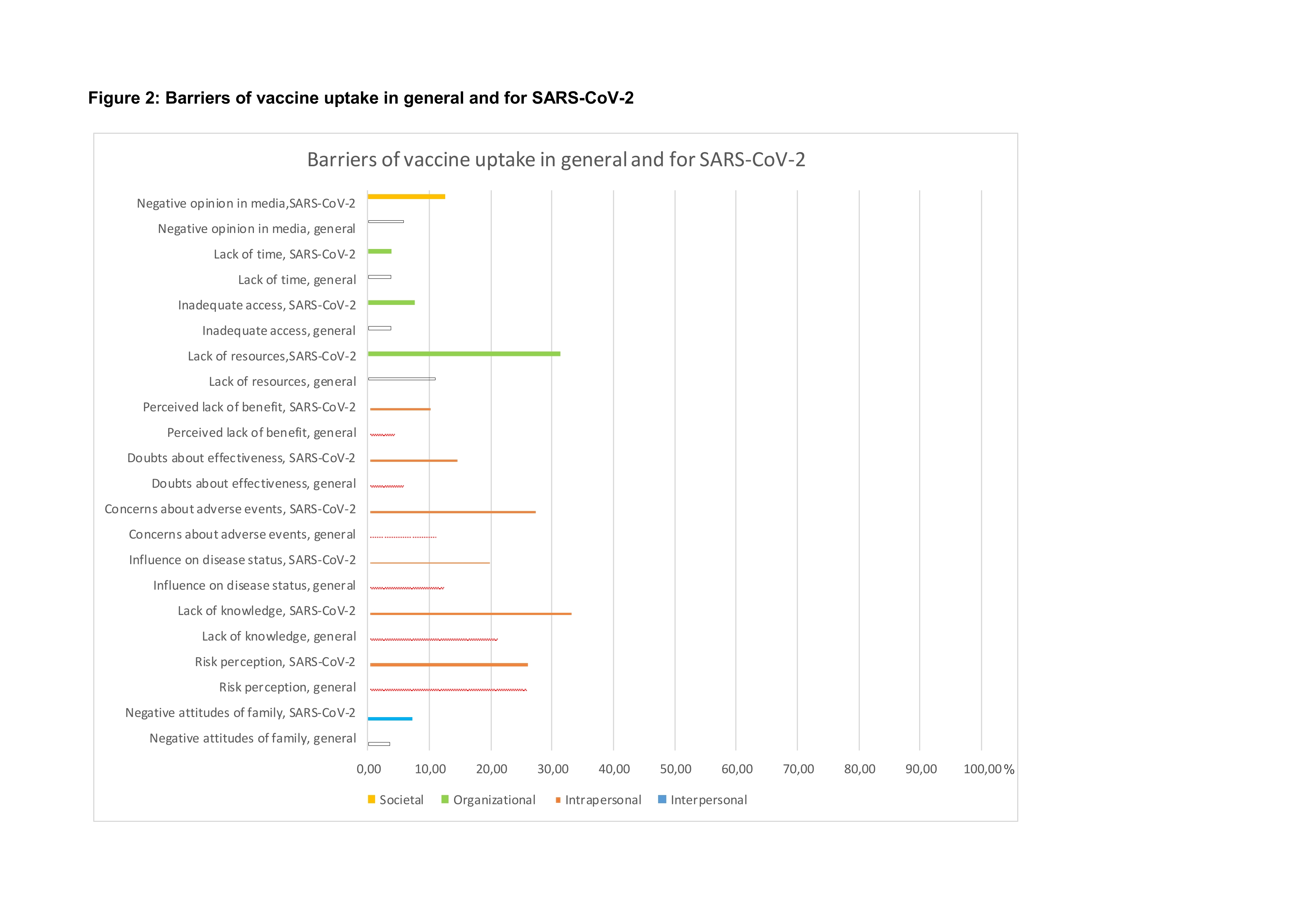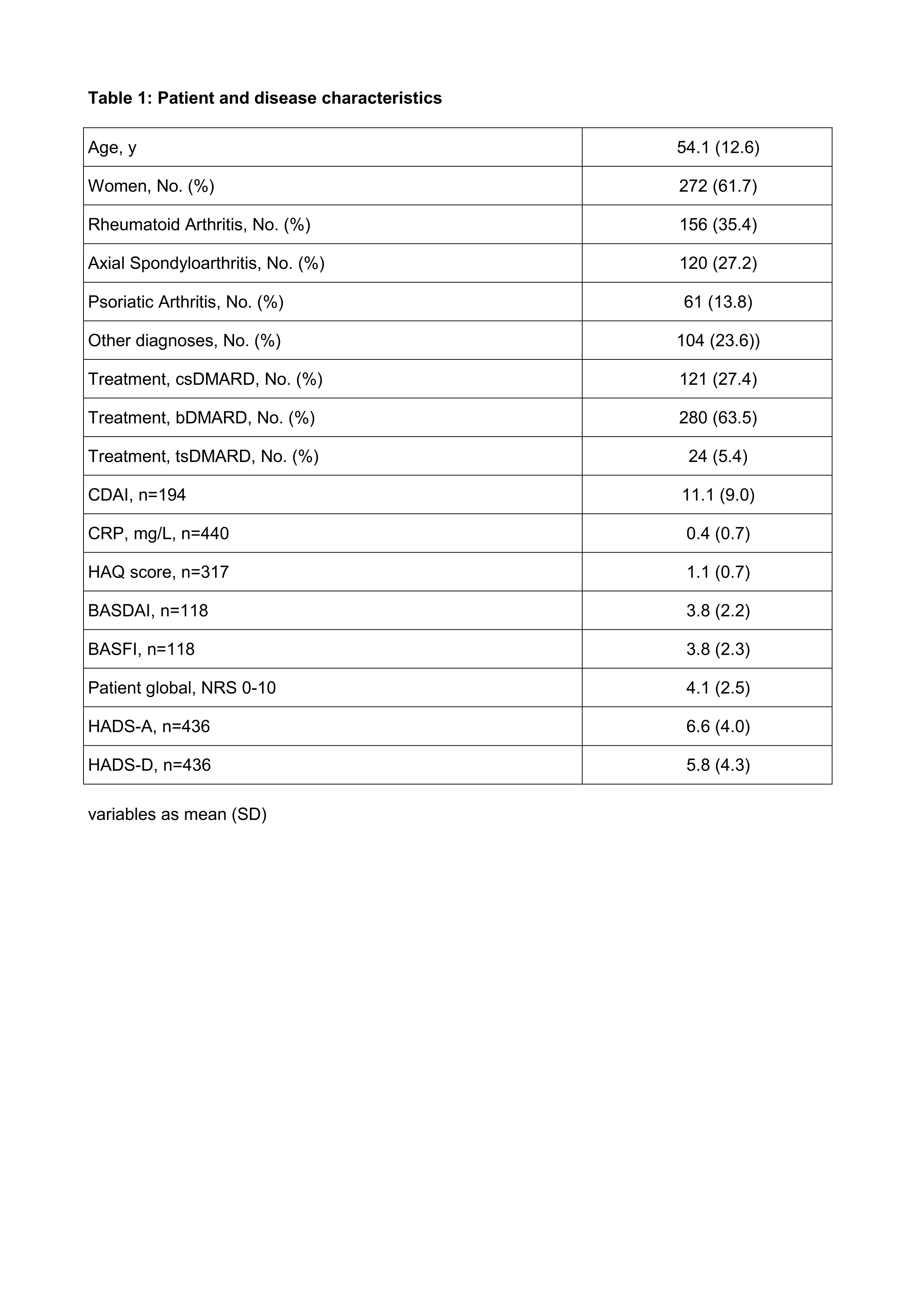Session Information
Date: Saturday, November 6, 2021
Title: Epidemiology & Public Health Poster I: COVID-19 & Vaccination (0084–0117)
Session Type: Poster Session A
Session Time: 8:30AM-10:30AM
Background/Purpose: Patients (pts.) with chronic inflammatory rheumatic diseases (CIRD) are often not adequately protected against infectious diseases. As shown in an earlier study, less than 50% of CIRD pts. were vaccinated against pneumococci and influenza before the SARS-CoV-2 pandemic started 1. High vaccination rates are critical to achieve herd immunity. Knowledge on barriers and facilitators of vaccine uptake in CIRD pts. is limited. The aim of this study was to characterize barriers and facilitators towards vaccines in general and specifically against pneumococci, influenza and SARS-CoV-2 in adult CIRD pts..
Methods: In early 2021, consecutive CIRD pts. completed a structured questionnaire including knowledge on vaccination, attitudes, and perceived barriers and facilitators towards vaccination. A total of 12 facilitators and 11 barriers towards vaccination was assessed in general, and specifically for vaccination against pneumococci, influenza and SARS-CoV2. The Likert scales had 4 response options, ranging from 1 (completely disagree) to 4 (completely agree). Patient and disease characteristics, their vaccination history and attitudes towards vaccination against SARS-CoV-2 were assessed.
Results: Of 514 prospectively recruited pts., 441 responded (85.8%) to the questionnaire (table 1). Self-reported vaccine uptake was 48.8% against pneumococci and 66.2% against seasonal influenza. The majority (82.2%) was willing to be vaccinated against SARS-CoV-2. The majority (≥70%) had decent knowledge about vaccination, and only < 10% doubted its effectiveness. The level of knowledge did not differ between the studied 3 vaccinations. Pts. were more likely to rate statements about facilitators favorably compared to statements about barriers. Facilitators for SARS-CoV-2 vaccination did not differ from vaccination in general (figure 1). Societal and organizational facilitators such as public vaccine campaigns or protection for high risk pts. were more commonly named compared to inter- or intrapersonal facilitators. Protection of high-risk pts. was by far the most frequently cited facilitator. Most pts. indicated that they were likely to receive a vaccine if their health care professional would recommend it – without preference for GP or rheumatologist. The frequency of barriers was much lower compared to facilitators and more barriers towards SARS-CoV-2 vaccination were reported in comparison to vaccination in general or pneumococci and influenza, respectively. However, pts. frequently cited intrapersonal issues as barriers against vaccination. Importantly, the major barrier was an inadequate risk perception between the severity of COVID-19 and the potential adverse events of the vaccine.
Conclusion: A relatively high number of pts. was vaccinated against pneumococci and influenza, actually more than in our last study – a probable campaign success. Importantly, more than 80% of pts. were willing to be vaccinated against SARS-CoV-2. Facilitators were of greater significance than barriers. The high number of societal and organizational facilitators enables the implementation of effective strategies to increase future vaccination rates.
Reference: 1 Kiltz et al. RMD Open 2021
Table legend on the bottom: variables as mean (SD)
To cite this abstract in AMA style:
Andreica I, Roman I, Baraliakos X, Braun J, Kiltz U. Vaccination of Patients with Chronic Inflammatory Rheumatic Diseases: An Analysis of Barriers and Facilitators in a Prospective Cohort [abstract]. Arthritis Rheumatol. 2021; 73 (suppl 9). https://acrabstracts.org/abstract/vaccination-of-patients-with-chronic-inflammatory-rheumatic-diseases-an-analysis-of-barriers-and-facilitators-in-a-prospective-cohort/. Accessed .« Back to ACR Convergence 2021
ACR Meeting Abstracts - https://acrabstracts.org/abstract/vaccination-of-patients-with-chronic-inflammatory-rheumatic-diseases-an-analysis-of-barriers-and-facilitators-in-a-prospective-cohort/



